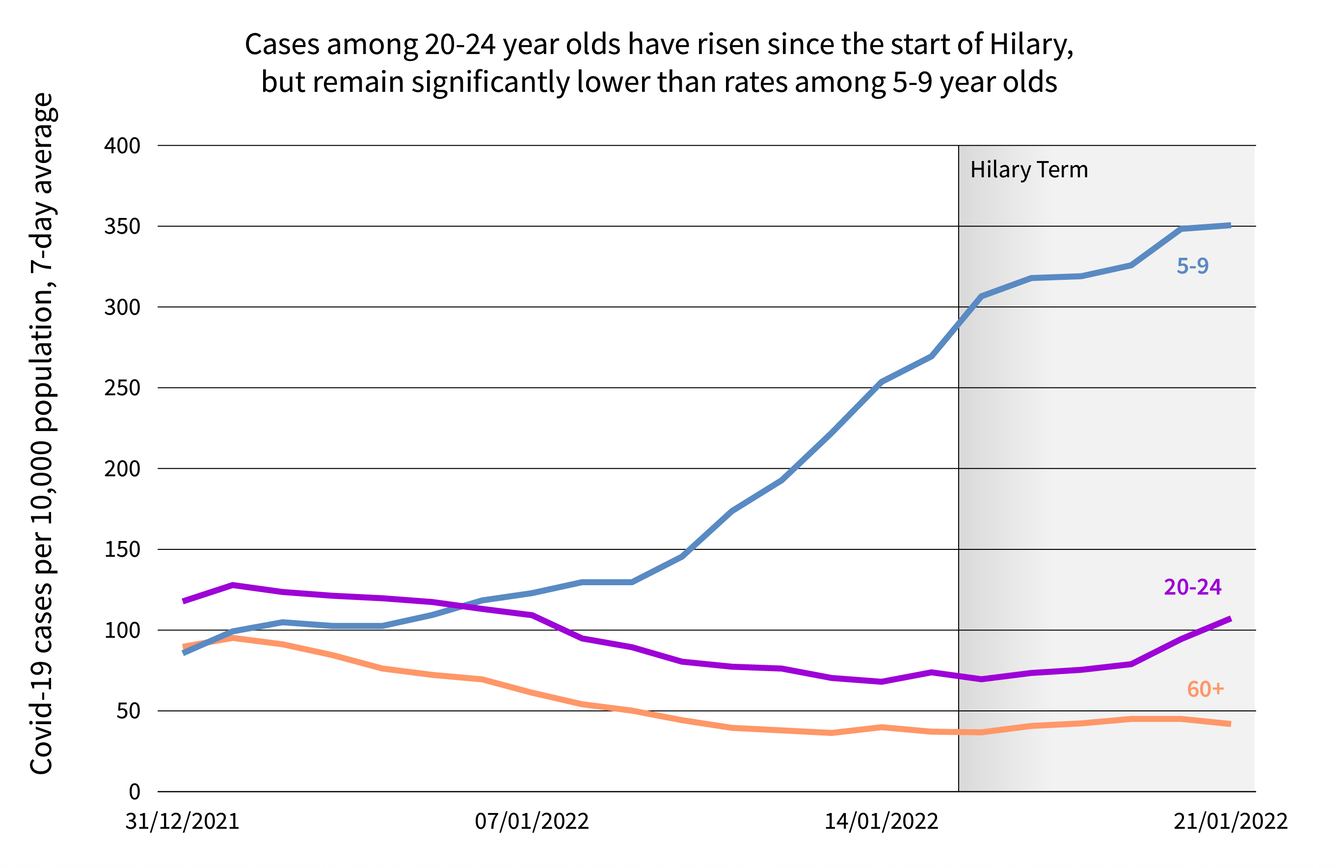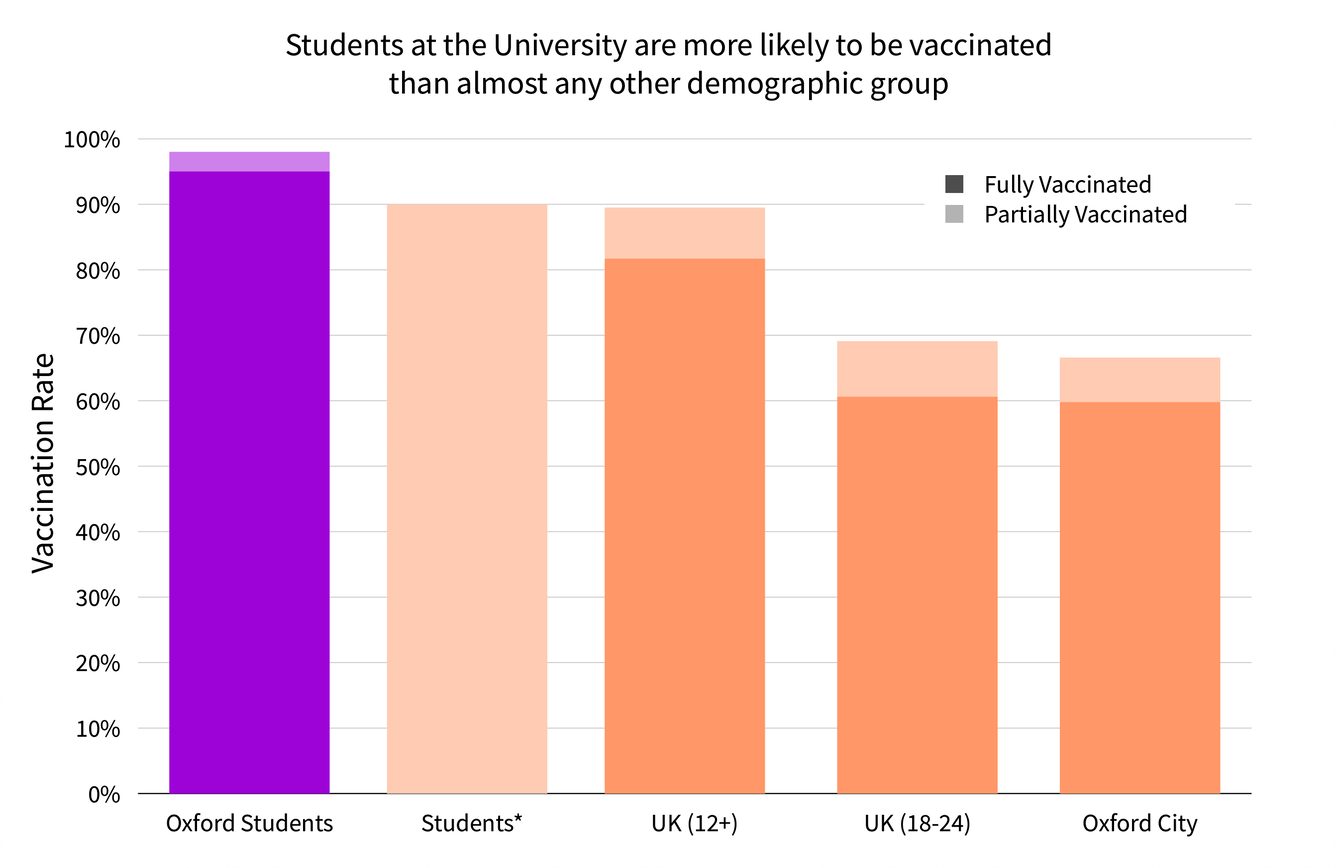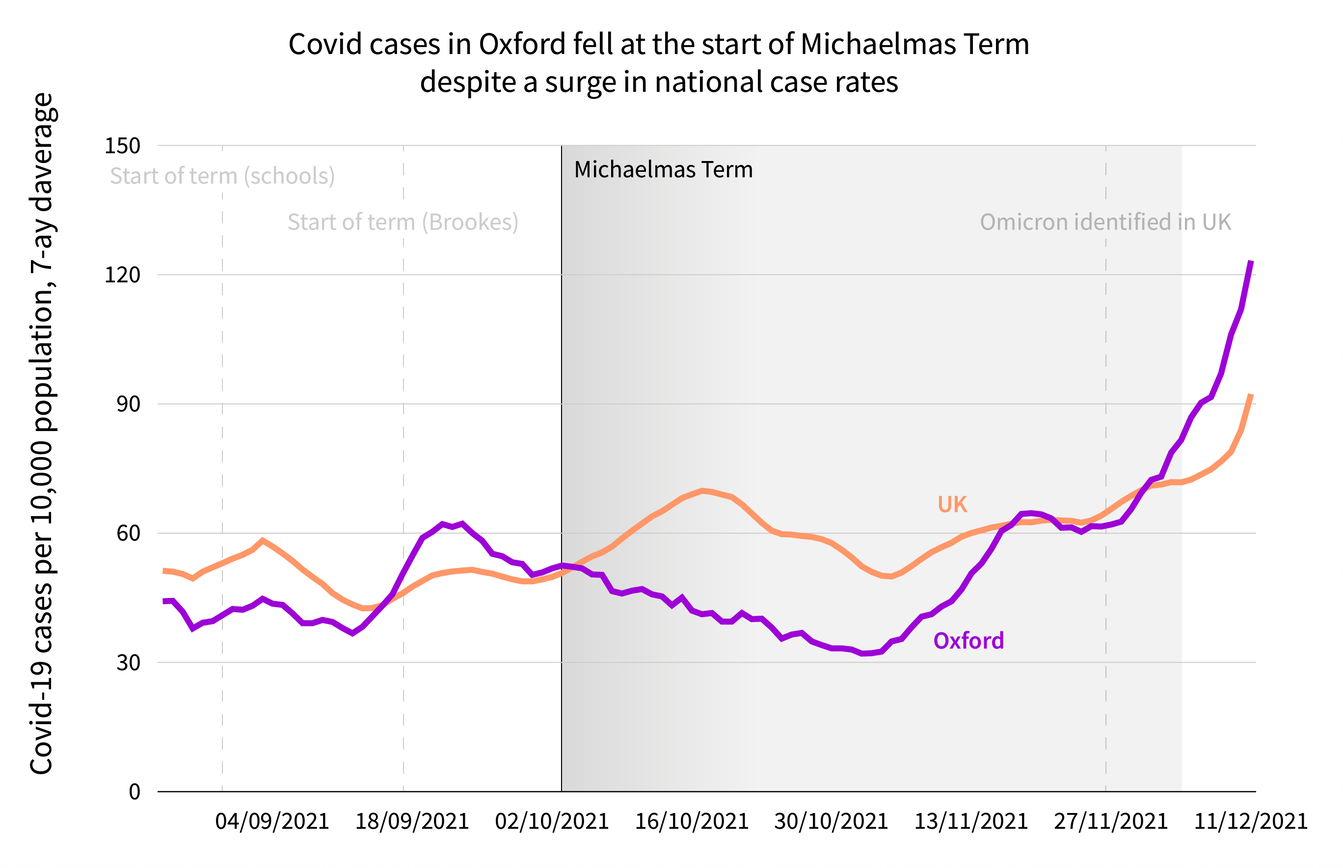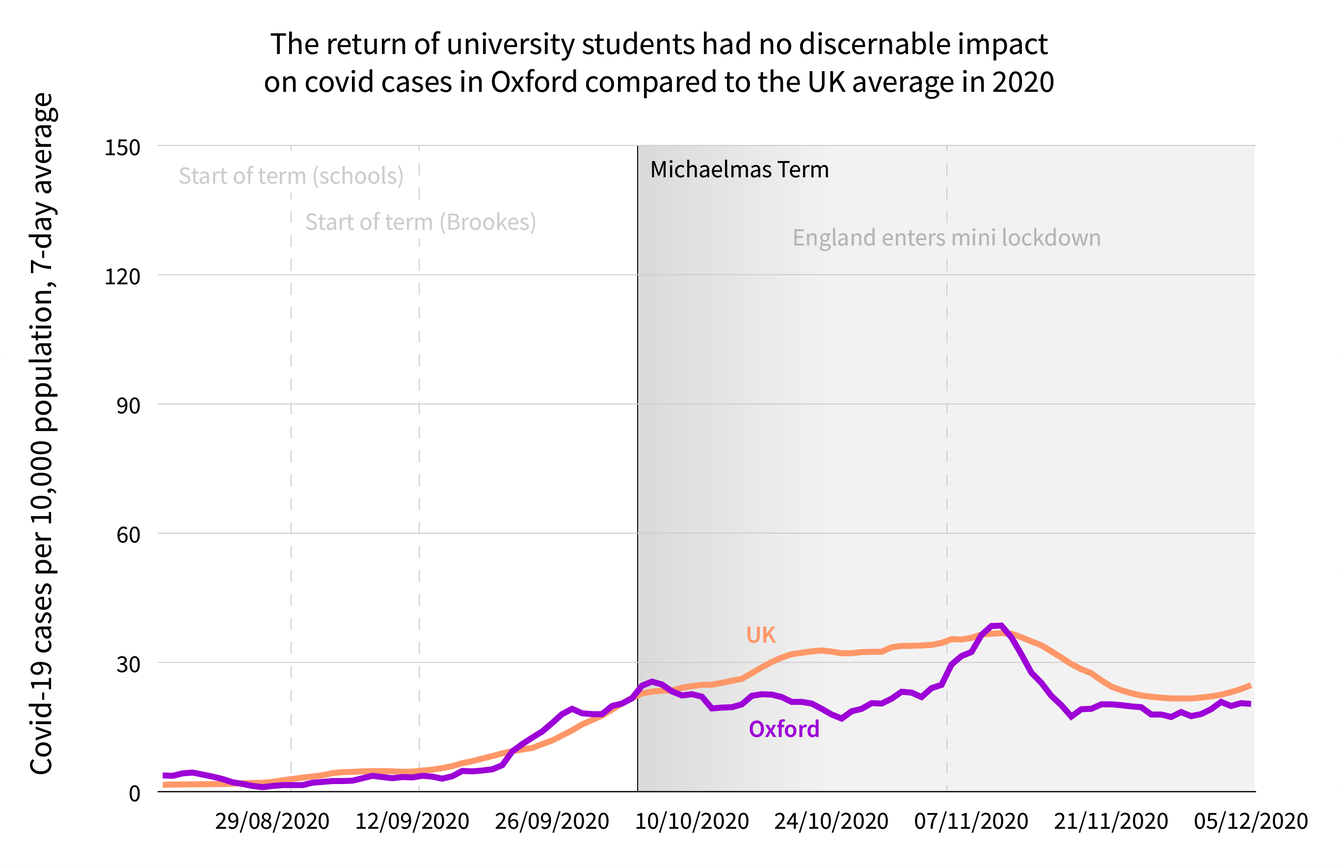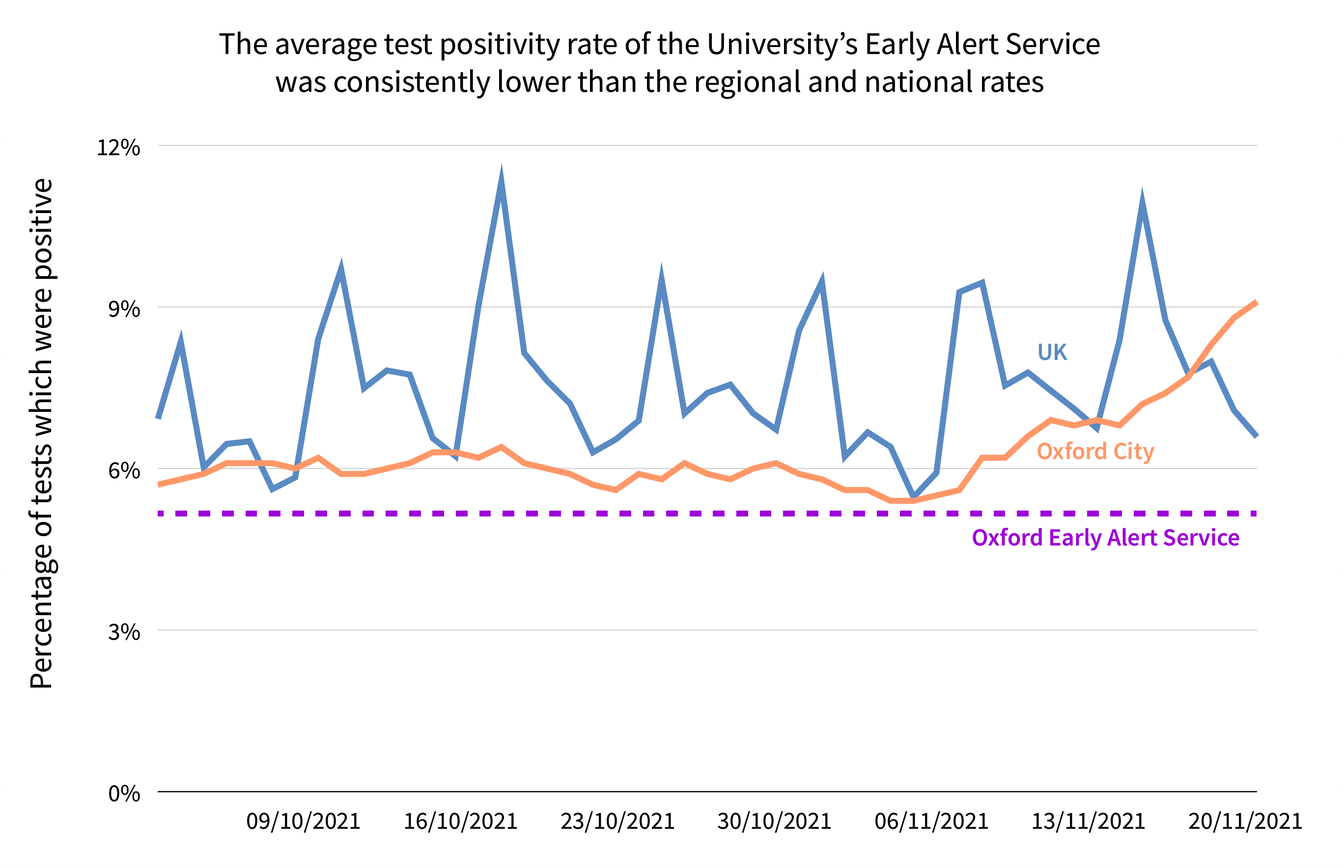You’ve seen the posters, the flyers, the trailer… Ahead of 00Productions’ Sweeney Todd opening at the Oxford Playhouse this week, Cherwell Stage spoke to Director Imogen Albert, Musical Director Isaac Adni, Producer Harvey Dovell, and leads Daniel McNamee (Sweeney) and Maggie Moriarty (Mrs Lovett) about Sondheim, sitzprobes, and the challenges of bringing a large-scale musical to life in a pandemic.
What made you want to get involved with this project?
Harvey: I’ve always wanted to do a big Playhouse musical and Sweeney is the perfect mix between a classic show and an opportunity for amazing designs. Imogen and I had just finished Oxford’s first virtual musical The Last Five Years and were looking forward to returning to in person theatre, and planning this gave us the drive to return.
Isaac: Musical directing Sondheim’s best musical in Oxford’s biggest student venue: I’m obviously not going to say no.
Daniel: It’s one of my favourite shows, when I heard it was happening there was never a question about auditioning.
Maggie: Pretty much the same as Danny: I think it’s a lush score by one of my all time faves. It also offered a last chance to squeeze a final show in before finals.
What has been your favourite part of the process so far?
Imogen: Not one, but the beginning of every step of the process, from starting auditions to first blocking rehearsals to hearing the band for the first time and walking into the Playhouse.
Isaac: Hearing the full brass play together for the first time was incredible.
Daniel: Our first full day of rehearsal was very exciting, and the company is incredibly warm. It’s been lovely getting to know everyone.
Maggie: There have been many, but one that was the most thrilling was singing the opening ballad as a whole cast with the band for the first time. I’d never felt such a mix of excitement and nerves and awe all at once. Also, the first time doing ‘Little Priest’ with Danny was a whirlwind and ridiculously fun.
Harvey: The moment when all the design sketches for the bid came in really is up there for me. It’s just so exciting to see the entire team’s creativity and have them spread their wings like the OP shows provide the opportunity for.
What has been the most challenging part of the process so far?
Isaac: Trying to work out ways for cast members to pluck notes out of thin air (thanks Sondheim!).
Maggie: The score for sure – particularly the final eleven bars I sing. Also getting covid near the show hasn’t done wonders for the voice and remembering all the blocking.
Harvey: COVID. It’s just been in our way at every turn. From the very beginning of the process almost every plan needed multiple backup plans and even with all the preparation we had things still have been difficult in the recent weeks. But the team has pulled through and overcome so many obstacles to do this production.
How has it been trying to stage a musical with the effects of the pandemic?
Isaac: Dealing with people having to isolate is a massive pain.
Imogen: Yes. Yes it has. Like so hard. So many major changes last minute, so much uncertainty, so much out of control – we have to make like three back up plans for everything. Also having to cancel almost a week of rehearsals before show week, never getting a run of the show and not having a full cast, or knowing what the full cast is, until opening night. Also covid anxiety is real, on top of all the normal stresses of doing a large-scale Playhouse show.
Harvey: Endless difficulties have come up, with a new problem to solve almost every week. It makes each decision so much harder when you know that it knocks on to all the back up plans. The whole production process has been a lot more distant which has been a huge shame as it can be such a social process which has been limited this time.
Most memorable rehearsal story?
Imogen: All the people looking in confused at why Danny is pointing razors at people, or when we’re just standing there crying… and then the one where we all got covid.
Daniel: The super spreader sitzprobe event. (A sitzprobe is the first rehearsal the cast has doing the full show with orchestra.)
Maggie: When four cast members plus director started to cry at the end of a scene and MD Isaac looked on in confused horror. And yes, definitely that sitzprobe!
What have you learnt putting on this show?
Imogen: All the possible ways to email your tutors and tell them you haven’t done the essay.
Maggie: Many new vocal tips and tricks from Isaac and our Assistant Musical Director Jake (the beauty of a ginger shot being my fave). And from Danny, the importance of forming a strong partnership of trust and understanding to bring this strange dysfunctional duo to life.
Harvey: That you can never have enough back up plans. Persevering through everything and still being able to put the show we wanted on has shown that with a talented team challenges just take a little effort to overcome.
What specific challenges came with having the Playhouse as a venue and thus a larger scale, and how did you overcome them?
Imogen: Not getting into venue until two days before opening, as there’s no space like it to rehearse. Also there’s so much tech to do, so there’s nothing really to prepare for something this large-scale within Oxford drama, especially for production team/head of department positions.
Harvey: The set is a major one. To fill a space of this size with something that feels complete is difficult as every part of it needs to be constructed in the weeks leading up to the show. Building something that big can feel like an endless task and everyone that put time into the workshop has helped change it from wood and paint into a dramatic set!
What advice would you give to those wanting to get involved with drama at Oxford?
Isaac: For actors, just audition: we can’t cast you if you don’t audition! For getting involved with directing/musical directing: network! Find people you want to work with and form a team!
Imogen: Apply for assistant positions, talk to people who have done it before – everyone happy to chat! Go and see lots of things, and choose a team that you 100% trust and want to spend hours and hours with.
Maggie: Really what Isaac says. It seems daunting but I have no better advice than if you just see a show that you feel passionate about or looks interesting to you – just go for it. It’s how I did my first show. I was scared because I was a fresher with no particular fancy theatre experience prior to university and thought myself very clueless. But I saw the callout for my favourite musical at the time and thought I had nothing to lose.
Harvey: Persistence. For actors, if you don’t get one role it’s all about going for that next one. And for production team, just get involved wherever. Even if it’s not exactly what you want to do, it’s all about just being part of a show and so often you can work to help other departments and learn as you go.
Why should people see Sweeney Todd?
Imogen: Because we all worked really hard and everyone is so talented.
Harvey: Sweeney Todd is an amazing show with a wonderful team of talented actors, creatives and crew behind it. It’s a triumphant return to large production value and scale musicals and the sound of Sondheim’s score really shows that musicals can be about anything. Even a murderous barber and some suspicious meat pies.
Sweeney Todd: The Demon Barber of Fleet Street runs at the Oxford Playhouse from 2-5 February. Tickets available here.
Image Credit: Debora Krut







